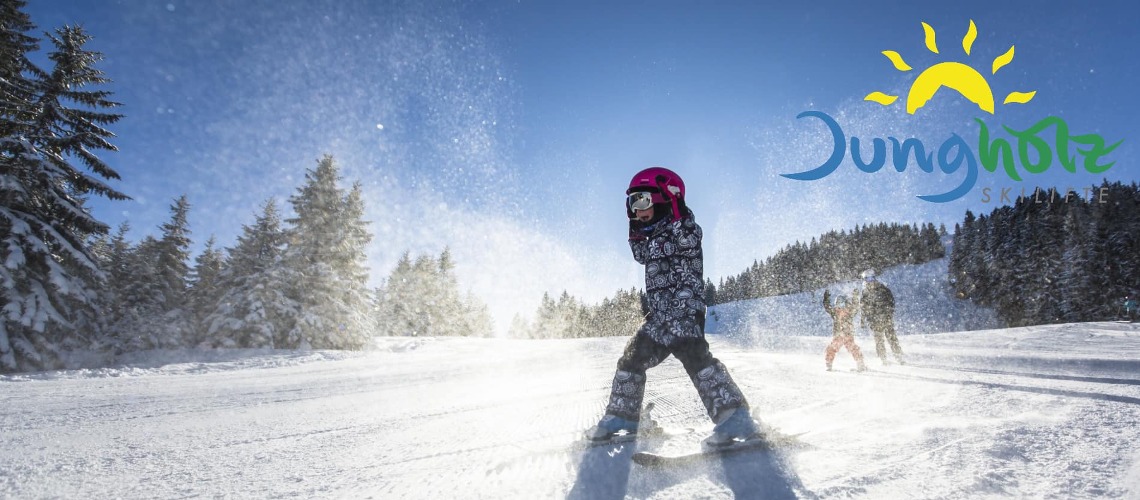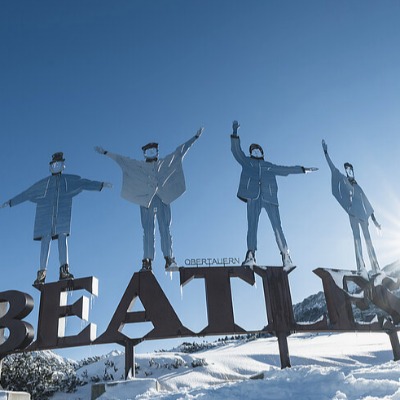Jungholz Ski Area Goes Broke

Jungholz Ski Resort in Tirol, Austria, announced its closure today, citing financial difficulties following a challenging winter season.
Hidden away in the Allgäu Alps, surrounded on all sides by Bavaria, the village of Jungholz is a Tirolean exclave on German territory. The family-friendly ski resort of the same name has plenty of north-facing slopes served by modern lifts, including some chairlifts specially designed for children. Children could have fun and learn to ski in the "N'Ice Bear Kinderland Jungholz" at the bottom of the resort, while adrenaline junkies should visit the "Grizzly Family Snowpark" with its mogul run, obstacles and kickers. The resort's pistes lie at a snowsure altitude of between 1,100 and 1,500 metres above sea level which has caused problems related to poor snow conditions.
The resort, known for its family-friendly slopes and picturesque location in the Allgäu Alps, struggled with several factors this past season. Warmer than usual temperatures led to inconsistent snow cover, impacting visitor numbers. Additionally, rising operational costs, particularly energy prices, put a strain on the resort's finances.
"This decision was incredibly difficult," said a spokesperson for Jungholz Ski Resort. "We understand the disappointment this may cause our loyal guests. Unfortunately, the economic climate and the challenges we faced this season made it impossible for us to continue operating."
The future of the resort remains unclear. The owners are exploring various options, including potential partnerships or a change in management. However, the immediate closure leaves many local businesses dependent on winter tourism facing uncertainty.
"The closure of Jungholz Ski Resort is a significant blow to our community," said a local shop owner. "Many businesses rely on winter tourism, and this will have a ripple effect throughout the town."
While the future of Jungholz Ski Resort is uncertain, its legacy as a family-friendly winter destination remains. Skiers and snowboarders who have enjoyed the slopes can hope for a potential revival in the coming years.
The resort, known for its family-friendly slopes and picturesque location in the Allgäu Alps, struggled with several factors this past season. Warmer than usual temperatures led to inconsistent snow cover, impacting visitor numbers. Additionally, rising operational costs, particularly energy prices, put a strain on the resort's finances.
"This decision was incredibly difficult," said a spokesperson for Jungholz Ski Resort. "We understand the disappointment this may cause our loyal guests. Unfortunately, the economic climate and the challenges we faced this season made it impossible for us to continue operating."
The future of the resort remains unclear. The owners are exploring various options, including potential partnerships or a change in management. However, the immediate closure leaves many local businesses dependent on winter tourism facing uncertainty.
"The closure of Jungholz Ski Resort is a significant blow to our community," said a local shop owner. "Many businesses rely on winter tourism, and this will have a ripple effect throughout the town."
While the future of Jungholz Ski Resort is uncertain, its legacy as a family-friendly winter destination remains. Skiers and snowboarders who have enjoyed the slopes can hope for a potential revival in the coming years.
The company was founded in the early 1950s. In recent years, attempts have been made to position itself on the market as a ski resort that is particularly suitable for families. The debtor has real estate assets that are encumbered with liens from the financing bank. The extent to which the sale of this property would result in a surplus for the general estate will be determined as part of these insolvency proceedings.
There is currently no verified information about the reasons for this insolvency. SIN will investigate these causes in cooperation with the insolvency administration.
The insolvency administrator will have to decide promptly whether the debtor's operations can be continued without further disadvantages for creditors. The debtor generally does not operate in the summer and currently incurs only low costs compared to the winter months.
Of course, the corresponding maintenance and preparatory work must be carried out in the summer months. This is so that the winter season can start without technical difficulties. The insolvency administrator will now have to check whether he can manage this continuation in the next few weeks within the strict requirements of the Austrian Insolvency Code. This decision will have to be made promptly. In particular, it remains to be seen whether the debtor is in a position to demonstrate in a comprehensible manner that a continuation can be on economically solid ground.
Based on the information available, liabilities of at least EUR 3.1 million can be assumed. The exact amount of outstanding liabilities will become clear in the course of the proceedings.













